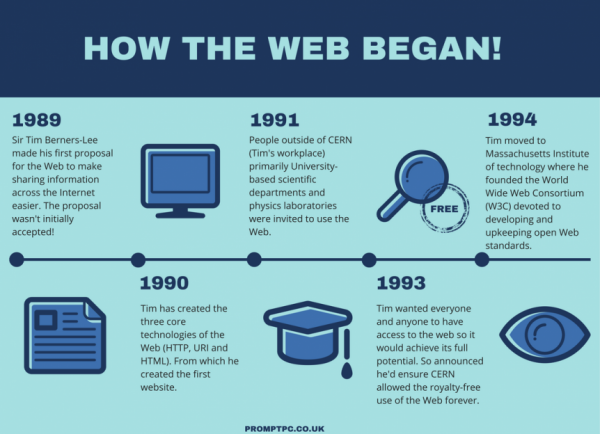The History Of Search Engines – What Should You Use?
If you want to confuse a modern mobile user, tell them that search engines are older than the World Wide Web. They’ll be surprised since they’re typically making the common mistake of confusing the Internet with the WWW. The Internet goes back to ARPANET circa 1969. The World Wide Web didn’t come along until Sir Tim Berners-Lee decided to adopt the graphical user interface becoming popular at the time with document transmission, creating Hyper-Text Transfer Protocol (you know it as “http://” today) in 1992.
Before the WWW, web browsers, and everything else we think of in the modern web, the Internet was still a thriving, active network existing in such standards as Internet Relay Chat (IRC), Bulletin Board Systems (BBS), and Usenet. For navigation, which was admittedly spotty, you had Gopher protocol, which eventually led to the first primitive Internet search engines in the late 1980s. The first was “Archie,” named as a shorthand for “archives,” though in typical Internet fashion everyone associated it with the comic book character and its successor was christened “Veronica.”
After Tim Berner-Lee and the WWW, the web at first took to directories as the chosen hierarchy of navigation. In the mid-1990s, these early fledgling attempts were W3Catalog, Infoseek, Lycos, and a page originally titled “Jerry and David’s Guide to the World Wide Web,” a site we would later know as Yahoo. Later engines entered the fold, such as HotBot, AltaVista, Ask Jeeves (would become Ask.com), Inktomi, Disney’s Go.com, and MSN, the Microsoft Network.
Google did not come along until the late 1990s, almost at the turn of the century. By that time, the rise of Google wasn’t so much about superior technology than that it was still the pioneer days of the web, where most search engines were still not sure what users wanted. Google hit that sweet spot of offering up very relevant results and doing it very fast, bolstered by its already considerable data server banks.
One would think that the history of search engines ends there – Google dominated the market today two decades later and second and third place are very distant. But actually, not everybody has been happy with the direction Google has taken. Increasingly controlling the world’s flow of information, Google has leveraged itself into a near-monopoly, wantonly sold users’ data to the highest advertising bidder, and ruthlessly censored the Internet at the behest of any opponent of free speech.
While the old guard of contemporary and even pre-Google search engines like Ask and Yahoo still keep the lights on, new upstart engines like DuckDuckGo and Gibiru have risen to be Google’s defiant opposites, putting user experience ahead of profit by protecting user privacy and not censoring search results. Specialized search engines like Hot.com, MillionShort, or BoardReader have arisen to focus on just one narrow part of the web.
One of the problems with a monopoly is that it stifles innovation. In each era of technology, from IBM to AT&T to Microsoft to Google to Amazon, the industry leader tends to stagnate, sticking to its formula for success because it can’t risk losing what put it ahead in the first place. Upstart Silicon Valley entrepreneurs have no such restriction.
So at the end, which search engine should you use? No one is going to fault you for using Google, of course. But really, which engine you use today makes less difference in search quality results than you’d think. For instance, even though Google doubtless doesn’t consider Yahoo a threat, Yahoo is still the sixth-most-visited site on the web. Search engines that don’t steer your query towards their biggest ad seller and don’t yank your data for third-party usage might be much more useful to you than a general-purpose search.
This is actually the true beauty of the web, the reason it was so attractive in the early years. Anything is possible. History may look back on the era of Google as a lost decade when innovation stalled because nobody dared compete with number one.

















